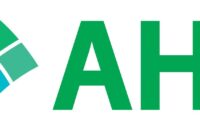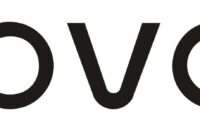Rapid benefit of sotagliflozin supported by data from the SOLOIST and SCORED trials presented at ESC Congress 2021 – The Digital Experience, including:
- 33% absolute risk reduction in the composite cardiovascular endpoint in type 2 diabetes patients with acute decompensated heart failure (HF), with consistent results among patients with preserved ejection fraction (HFpEF) and reduced ejection fraction (HFrEF). Benefit was evident within one month.
- 26% reduction in the composite cardiovascular endpoint in patients with type 2 diabetes and chronic kidney disease. Benefit was evident within three months.
- Reductions in heart failure-related events were more pronounced at the target once-daily dose of sotagliflozin 400 mg.
- Reductions in both myocardial infarction and stroke were greater than reported in studies of selective SGLT2 inhibitors.
- Overall tolerability was comparable to placebo across both trials
THE WOODLANDS, Texas, Aug. 23, 2021 (GLOBE NEWSWIRE) — Lexicon Pharmaceuticals, Inc. (Nasdaq: LXRX), today presented additional analyses of sotagliflozin data from the SOLOIST and SCORED Phase 3 clinical trials at ESC Congress 2021 – The Digital Experience. Sotagliflozin is a first-in-class, investigational dual SGLT1 and SGLT2 inhibitor that showed substantial reductions, compared to placebo, in the primary endpoint of total cardiovascular deaths, hospitalizations for heart failure, and urgent visits for heart failure in both studies in patients with type 2 diabetes and worsening heart failure or chronic kidney disease.
“Based on analyses of the SOLOIST and SCORED trials, sotagliflozin robustly and significantly reduced heart failure hospitalizations, myocardial infarction and stroke,” said Dr. Deepak L. Bhatt, M.D., M.P.H., Executive Director of Interventional Cardiovascular Programs, Brigham and Women’s Hospital; Professor of Medicine, Harvard Medical School, Boston, MA, USA; Study Chair of the SOLOIST and SCORED clinical trials. “Sotagliflozin also showed rapid and broad benefit across multiple cardiovascular endpoints. Although direct, head-to-head clinical comparisons have not been performed, the reductions in both MI and stroke observed with sotagliflozin appear greater than what has been published in meta-analyses of clinical data from selective SGLT2 inhibitors.”
Dr. Bhatt presented these new findings in a virtual podium presentation entitled, “Benefits of SGLT2-1/2 Inhibition on Heart Failure, Ischemic, and Kidney Endpoints.” The new analyses evaluated the effect of titrating sotagliflozin from the initial daily dose of 200 mg to 400 mg on the primary endpoint (a composite endpoint of cardiovascular death, heart failure hospitalizations and urgent visits for heart failure) and other cardiorenal endpoints from the SOLOIST and SCORED trials. Approximately 73% of patients titrated to sotagliflozin 400 mg during the studies. Reductions in heart failure-related events were more pronounced at the target daily dose of sotagliflozin 400 mg, whereas similar results were observed between sotagliflozin 200 and 400 mg with other endpoints.
“The SOLOIST and SCORED trials continue to show compelling efficacy of sotagliflozin across the full spectrum of heart failure in the type 2 diabetes population, with potential for rapid, broad and substantial benefit,” said Dr. Gabriel Steg, Professor of Cardiology, Université de Paris, and Chief, Department of Cardiology at the Hôpital Bichat, Paris, France; Co-chair for the SCORED clinical trial. “Sotagliflozin is the only agent studied to date that has shown benefit in acute heart failure patients with therapy started following initial treatment or hospitalization for heart failure. The study data illustrate the value of sotagliflozin as a potential new treatment option for heart failure patients with type 2 diabetes.”
“Presentation of these new data is another milestone as we prepare to submit a New Drug Application with the U.S. Food and Drug Administration later this year for sotagliflozin, as a therapy for people suffering from heart failure and living with type 2 diabetes,” said Craig Granowitz, M.D., Ph.D., senior vice president and chief medical officer at Lexicon. “As a dual SGLT1/SGLT2 inhibitor, sotagliflozin has demonstrated potentially differentiating benefits for patients with type 2 diabetes in need of safe and effective treatment options for acute or chronic heart failure, regardless of their left ventricular ejection fraction.”
About the SOLOIST and SCORED Studies
SOLOIST was a multi-center, randomized, double-blinded, placebo-controlled Phase 3 study evaluating the cardiovascular efficacy of sotagliflozin versus placebo when added to standard of care in 1,222 patients with type 2 diabetes who had recently been hospitalized for worsening heart failure. The primary endpoint was the total number of events comprised of deaths from cardiovascular causes, hospitalizations for heart failure, and urgent visits for heart failure in patients treated with sotagliflozin compared with placebo.
SCORED was a multi-center, randomized, double-blinded, placebo-controlled Phase 3 study evaluating the cardiovascular efficacy of sotagliflozin versus placebo when added to standard of care in 10,584 patients with type 2 diabetes, chronic kidney disease with eGFR of 25 to 60 ml per minute per 1.73 m2 of body-surface area, and risks for cardiovascular disease. The primary endpoint was the total number of events comprised of deaths from cardiovascular causes, hospitalizations for heart failure, and urgent visits for heart failure in patients treated with sotagliflozin compared with placebo.
Key results from SOLOIST and SCORED were previously presented on November 16, 2020, at the Late-Breaking Science Session of the American Heart Association (AHA) Scientific Sessions 2020 and simultaneously published in The New England Journal of Medicine (NEJM) in two separate articles titled: “Sotagliflozin in Patients with Diabetes and Recent Worsening Heart Failure” and “Sotagliflozin in Patients with Diabetes and Chronic Kidney Disease” (Lexicon press release, November 16, 2020). The articles may be accessed at www.nejm.org.
About Sotagliflozin
Discovered using Lexicon’s unique approach to gene science, sotagliflozin is an oral dual inhibitor of two proteins responsible for glucose regulation known as sodium-glucose co-transporter types 1 and 2 (SGLT1 and SGLT2). SGLT1 is responsible for glucose absorption in the gastrointestinal tract, and SGLT2 is responsible for glucose reabsorption by the kidney. Sotagliflozin is approved in the European Union (EU) for use as an adjunct to insulin therapy to improve blood sugar (glycemic) control in adults with type 1 diabetes with a body mass index ≥ 27 kg/m2, who could not achieve adequate glycemic control despite optimal insulin therapy, but has not yet been commercially launched.
About Lexicon Pharmaceuticals
Lexicon is a biopharmaceutical company with a mission of pioneering medicines that transform patients’ lives. Through its Genome5000™ program, Lexicon scientists studied the role and function of nearly 5,000 genes and identified more than 100 protein targets with significant therapeutic potential in a range of diseases. Through the precise targeting of these proteins, Lexicon is pioneering the discovery and development of innovative medicines to safely and effectively treat disease. Lexicon advanced one of these medicines to market and has a pipeline of promising drug candidates in discovery and clinical and preclinical development in neuropathic pain, heart failure, diabetes and metabolism and other indications. For additional information, please visit www.lexpharma.com.
Safe Harbor Statement
This press release contains “forward-looking statements,” including statements relating to Lexicon’s clinical development of and regulatory filings for sotagliflozin and the therapeutic and commercial potential of sotagliflozin. This press release also contains forward-looking statements relating to Lexicon’s financial position and long-term outlook on its business, including the clinical development of, regulatory filings for, and potential therapeutic and commercial potential of LX9211 and its other potential drug candidates. In addition, this press release also contains forward looking statements relating to Lexicon’s growth and future operating results, discovery and development of products, strategic alliances and intellectual property, as well as other matters that are not historical facts or information. All forward-looking statements are based on management’s current assumptions and expectations and involve risks, uncertainties and other important factors, specifically including Lexicon’s ability to meet its capital requirements, successfully conduct preclinical and clinical development and obtain necessary regulatory approvals of LX9211, sotagliflozin and its other potential drug candidates on its anticipated timelines, achieve its operational objectives, obtain patent protection for its discoveries and establish strategic alliances, as well as additional factors relating to manufacturing, intellectual property rights, and the therapeutic or commercial value of its drug candidates. Any of these risks, uncertainties and other factors may cause Lexicon’s actual results to be materially different from any future results expressed or implied by such forward-looking statements. Information identifying such important factors is contained under “Risk Factors” in Lexicon’s annual report on Form 10-K for the year ended December 31, 2020, as filed with the Securities and Exchange Commission. Lexicon undertakes no obligation to update or revise any such forward-looking statements, whether as a result of new information, future events or otherwise.
For Inquiries:
Chas Schultz
Executive Director, Corporate Communications and Investor Relations
Lexicon Pharmaceuticals
(281) 863-3421
cschultz@lexpharma.com
![]()






